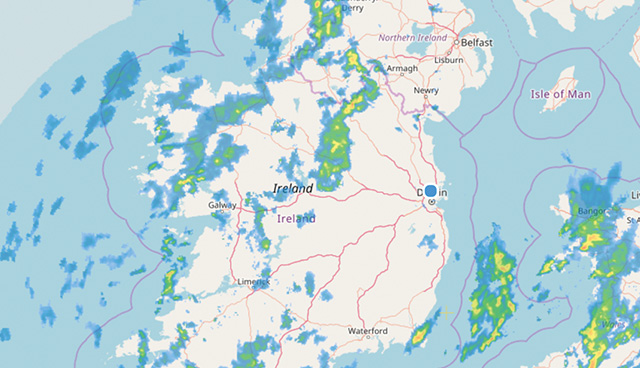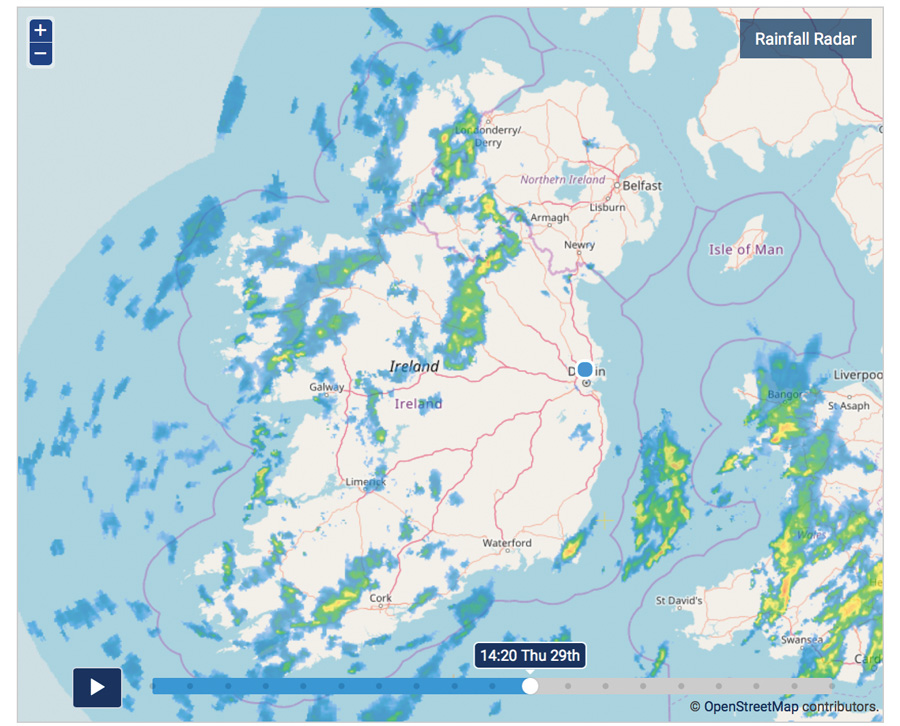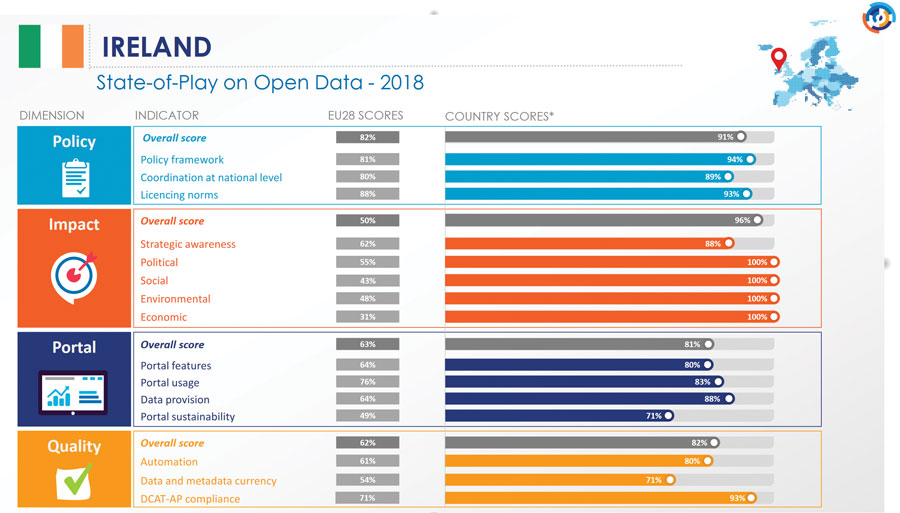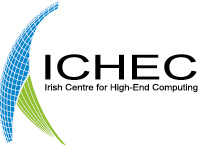High-performance computing powering the public sector


Jean-Christophe Desplat, Director of the Irish Centre for High-End Computing (ICHEC), outlines ICHEC’s successful public sector Engagement Programme and reflects on the role of High-performance computing in addressing the key challenges in society today.
High-performance computing (HPC) is now recognised as a technology which is increasingly required to process the huge quantities of data that exist in modern society. Indeed, the technology has the potential to change the very nature of how societies work and the way in which citizens engage with the world, and each other. This is becoming more important every year for the public sector where HPC and data management systems are being used more and more by government bodies to develop a whole new range of services to help improve society.
HPC is key to meeting the challenges of processing, exploiting and linking data in an era of increasing data proliferation. At ICHEC, we seek to support the public sector in addressing these challenges through partnership, delivering the expertise and capacity to meet the required scale and scope of analysis. We work with the public sector with regards to data management and processing to deliver solutions, training and services.
The applications of HPC in public services run through climate modelling and the processing of satellite image data for use in agricultural decision support platforms, to the exploration of how our national data can be used to inform policy in ways unthinkable in the past.
What is ICHEC?
ICHEC is the national HPC centre, established in 2005, and hosted by NUI Galway. With a team of more than 35 technology experts, we are focused on enabling the effective use of high performance computing technologies for industry – MNCs, SMEs and Irish based start-ups – public sector and academia.
ICHEC’s strength resides in its ability to assemble functional teams of domain experts, technologists, software engineers and project managers. Together, they leverage the centre’s knowledge in a multi-disciplinary approach to technical computing, data management and software engineering. This approach results in thriving programmes of public sector and industrial engagement, with well-known multinational corporations such as Intel, Xilinx and DataDirect Networks, high profile energy clients such as Tullow Oil and Bord Na Móna, SMEs such as Mainstream Renewables Power, Salaso Health Solutions, and Newswhip Media, and public bodies such as the Central Statistics Office (CSO), Teagasc, the Environmental Protection Agency (EPA), and Met Éireann.
How does ICHEC work with the public sector?
In addition to the national service, where we provide access to supercomputing resources, we’ve previously collaborated with Met Éireann on a variety of long-term projects, through which we have developed a strong relationship over the years. Most recently, we have partnered with Met Éireann to create their new website and app. In collaboration with the organisation we also run climate models contributing to a global framework for understanding how our climate will change throughout the 21st century. Our climate research is also instrumental in informing policy: ICHEC’s Paul Nolan authored the influential EPA report on Climate Predictions for Ireland in 2015.
Experience with managing large volumes of data for climate and weather modelling have led to collaborations in the area of satellite imagery provided by the European Space Agency (ESA). Since 2014, ICHEC has been archiving and developing processing capability for satellite data. Together with bodies such as Teagasc and the EPA, ICHEC are developing applications for the near real-time processing of these data, such as agricultural decision-support and flood preparedness tools. These data sets have been made available to Irish researchers and public bodies via a dedicated portal in 2018.
In addition, ICHEC’s comprehensive training courses are available on a commercial basis to a large number of public sector organisations and government departments. For example, we have organised a number of data science and visualisation courses for staff from over 15 government departments and agencies (e.g. Department of Health, Finance, Public Expenditure and Reform, Education and Skills, Office of the Revenue Commissioners, CSO, SOLAS). Recently we ran a course on deep learning – an important field powering many Artificial Intelligence (AI) systems.
Smart transport
One area that is currently very much in ICHEC’s frame of view is smart transport. We are working on a project which aims to create a consortium of key organisations responsible for the future planning of Ireland’s transport. To do this we aim to apply the latest advances in the disruptive technologies of AI, allied with the recent increases in computing power of HPC, to develop innovative solutions to optimise the existing traffic flow in Irish cities, improve road safety and to enable agile planning of Ireland’s future transport infrastructure.

National transport networks will be analysed and reorganised on a continual basis as well as intelligently managed during seasonal fluctuations, changing weather conditions, incidents and accidents. In addition, the project shall provide a measured economic impact – fuel-efficiency, lowered traffic congestions, reduced accident response times – along with reduced carbon emissions for an environmental friendly national transport operation.
A roadmap for investment in a national data infrastructure
The Disruptive Technologies Innovation Fund (DTIF) offers an important framework for RTOs such as ICHEC to engage with the public sector and accelerate the development and availability of improved public services to citizens, in line with the ambitions of Project Ireland 2040. Disruptive technologies have the potential to improve citizens’ quality of life in key domains such as transport, planning, health, education and many others, and ICHEC intends to leverage programmes such as DTIF to bring such benefits to Ireland. This process will be aided by the revision of the Public Sector Information (PSI) directive which aims to lower market entry barriers, particularly for SMEs, and minimise excessive first-mover advantage.
Recently I spoke at the Health Research Board (HRB) Annual Conference at Dublin Castle, where I described how society can make use of disruptive technologies, such as AI and deep learning, to help doctors make better decisions and improve the overall efficiency of the health system. AI is already changing the way doctors work. One example is that of new AI systems which can improve the accuracy of burn diagnosis compared to a cohort of doctors.
One big advantage we have in Ireland is that we are a very ‘data-open’ society. Recently the nation achieved first place for the second year in a row in the EU Open Data Maturity assessment – and since the public sector is one of the most data-intensive sectors, the re-use of open data can contribute hugely to the Irish economy. But we need a further roadmap for our national infrastructure to support these developments. Because of the huge amounts of data involved, public sector activities will require the use of HPC infrastructure and data management systems as we move forward into the data era.
As a nation we need to set out the requirements for a national infrastructure roadmap, and also emphasise gaining public acceptance for these new technologies.
For more information: Jean-Christophe Desplat, Director, Irish Centre for High-End Computing T: 01 524 1608 E: j-c.desplat@ichec.ie






